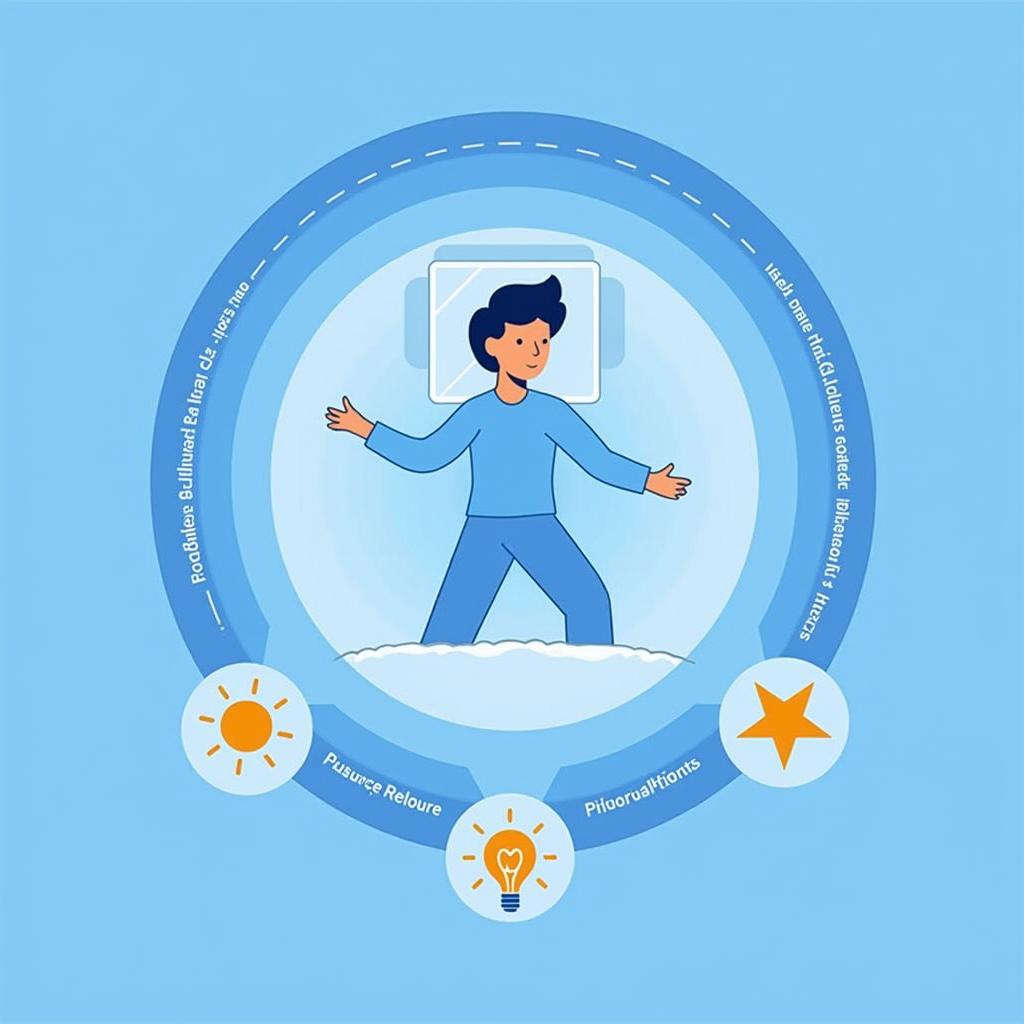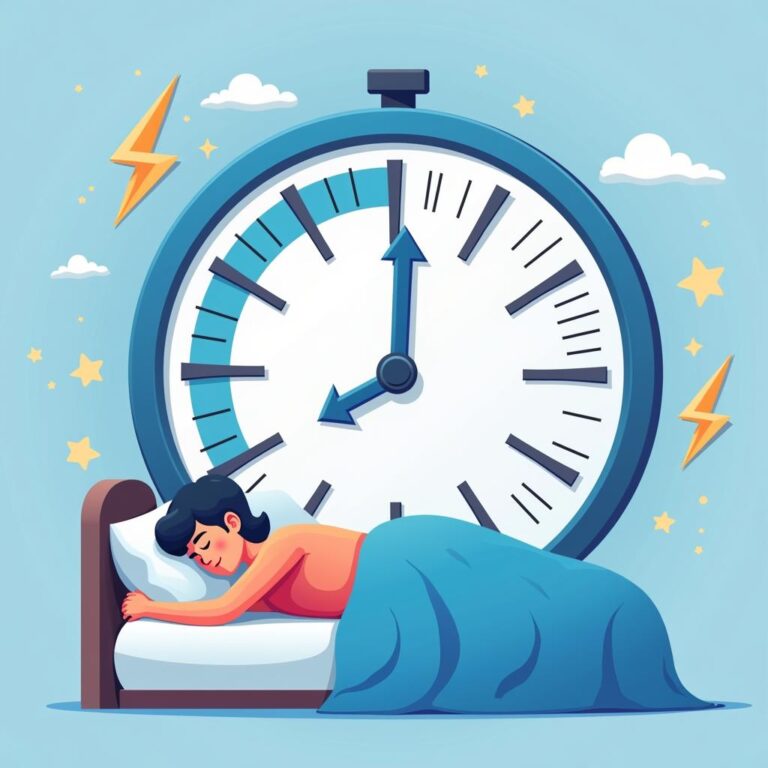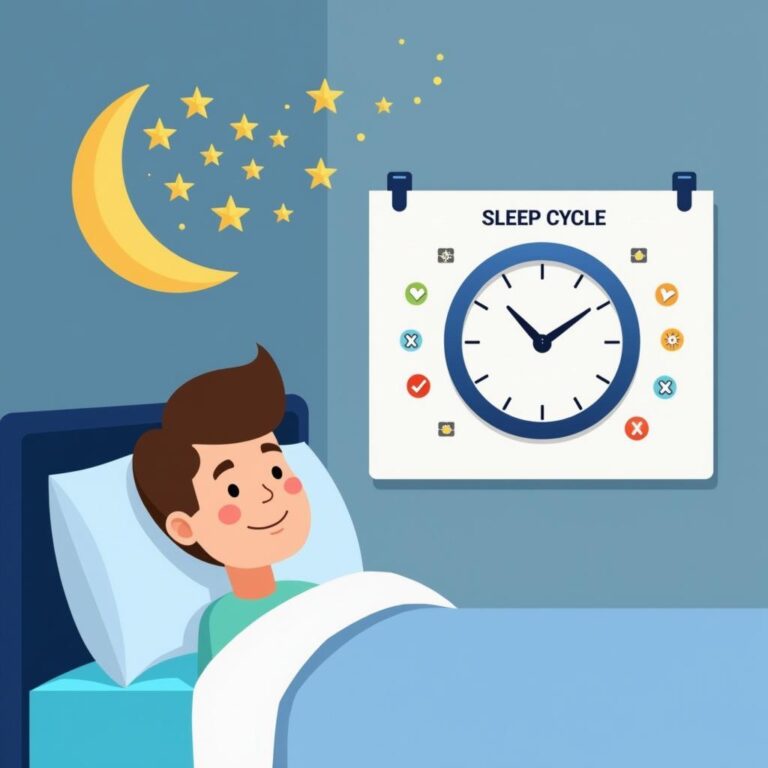Understanding how to leverage sleep cycles can significantly boost your performance, both mentally and physically. Sleep cycles are essential to our overall health, affecting everything from cognitive function to athletic performance. This article will delve into the science of sleep cycles and provide practical ways to optimize your sleep for enhanced productivity and well-being.
The Science Behind Sleep Cycles
Every night, our bodies go through a set of sleep stages that can be categorized into two broad types: REM (Rapid Eye Movement) and non-REM sleep. These cycles typically last about 90 minutes and repeat multiple times throughout the night. Understanding the stages of sleep can help you better regulate your sleep patterns:
- Stage 1 (Light Sleep): This is the transition period from wakefulness to sleep and lasts for a few minutes, during which you may experience drifting in and out of consciousness.
- Stage 2 (Light Sleep): This stage is marked by a drop in heart rate and body temperature. It prepares you for deep sleep and lasts for about 20 minutes.
- Stage 3 (Deep Sleep): Known as slow-wave sleep, this stage is critical for restorative processes, including tissue growth and repair, immune function, and energy recovery.
- Stage 4 (REM Sleep): This stage occurs after deep sleep and is essential for cognitive functions such as memory consolidation, learning, and emotional regulation.
By understanding these stages, you can utilize sleep cycles to enhance your overall performance.
Benefits of Optimal Sleep Cycles
Improving your sleep cycles can lead to numerous benefits:
- Enhanced Cognitive Function: Regularly going through complete sleep cycles improves memory retention and problem-solving skills, essential for both learning and work efficiency.
- Improved Mood: Quality sleep can help regulate hormones that affect mood, leading to less irritability and better emotional stability.
- Increased Energy Levels: A well-rested body is more energetic and productive throughout the day, reducing fatigue and enhancing stamina.
- Athletic Performance: Athletes who align their sleep patterns with their training schedules often report improved performance and quicker recovery times.
How to Utilize Sleep Cycles for Enhanced Performance
1. Determine Your Ideal Sleep Duration
Most adults require between 7 to 9 hours of sleep per night. To find your ideal sleep duration, consider your lifestyle and how you feel after different amounts of sleep. Aiming for complete sleep cycles can help you wake up feeling refreshed and alert.
2. Create a Consistent Sleep Schedule
Going to bed and waking up at the same time every day helps regulate your body’s internal clock. Consistency reinforces your body’s natural sleep-wake cycle, leading to better quality sleep.
3. Monitor Your Sleep Quality
Utilizing sleep tracking devices or apps can provide insight into your sleep patterns, helping you understand how often you enter different sleep stages. This information can guide you in making adjustments to improve your sleep quality.
4. Enhance Your Sleep Environment
Creating a comfortable and conducive sleep environment is key to enhancing sleep quality. Consider the following tips:
- Darkness: Use blackout curtains or an eye mask to block out light.
- Quiet: Minimize noise disturbances using earplugs or a white noise machine.
- Comfort: Invest in a good quality mattress and pillows that support your preferred sleeping position.
- Temperature: Keep the room cool, ideally between 60-67°F (15-19°C), for optimal sleep conditions.
5. Limit Exposure to Blue Light
Blue light emitted by screens can interfere with your ability to fall asleep. To improve your sleep cycles, try reducing screen time at least an hour before bed. Instead, unwind with a book or a relaxing activity that doesn’t involve screens.
6. Use Sleep Aids Wisely
If you’re struggling to fall asleep or stay asleep, consider incorporating natural sleep aids such as melatonin or herbal supplements like valerian root. Consult with a healthcare professional before starting any new supplement to ensure it’s safe for you.
7. Time Your Naps Smartly
If you need to take a nap during the day, keep it short (around 20-30 minutes) to avoid entering deep sleep, which can leave you feeling groggy. Aim to nap during the early afternoon to avoid interfering with your nighttime sleep schedule.
8. Incorporate Relaxation Techniques
Practicing relaxation techniques such as meditation, deep breathing exercises, or gentle yoga can help reduce anxiety and prepare your mind for sleep. Consider embarking on a calming routine to wind down before bed.
Conclusion
By understanding and utilizing sleep cycles for enhanced performance, you can significantly improve your daily life. Prioritizing quality sleep will boost cognitive function, stabilize mood, and increase energy levels. Take the time to analyze and optimize your sleep habits, create a conducive sleep environment, and adopt healthy routines. Striving for better sleep cycles can lead to remarkable improvements in both personal and professional performance, ensuring you wake every day ready to face new challenges.







